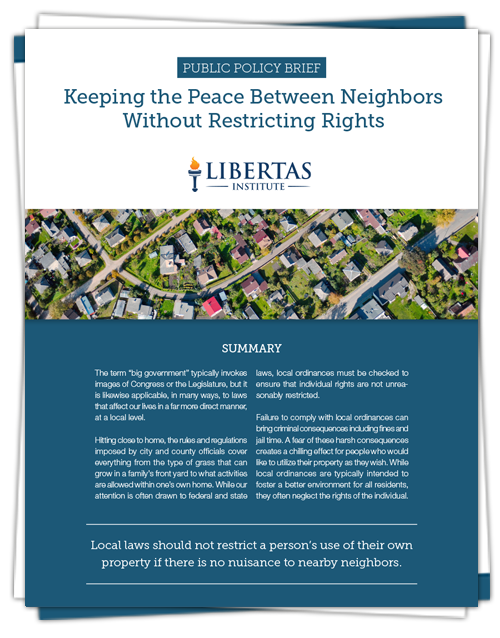Authored by Molly Davis, Criminal Justice Policy Analyst
 The term “big government” typically invokes images of Congress or the Legislature, but it is likewise applicable, in many ways, to laws that affect our lives in a far more direct manner, at a local level.
The term “big government” typically invokes images of Congress or the Legislature, but it is likewise applicable, in many ways, to laws that affect our lives in a far more direct manner, at a local level.
Hitting close to home, the rules and regulations imposed by city and county officials cover everything from the type of grass that can grow in a family’s front yard to what activities are allowed within one’s own home. While our attention is often drawn to federal and state laws, local ordinances must be checked to ensure that individual rights are not unreasonably restricted.
Failure to comply with local ordinances can bring criminal consequences including fines and jail time. A fear of these harsh consequences creates a chilling effect for people who would like to utilize their property as they wish. While local ordinances are typically intended to foster a better environment for all residents, they often neglect the rights of the individual.





